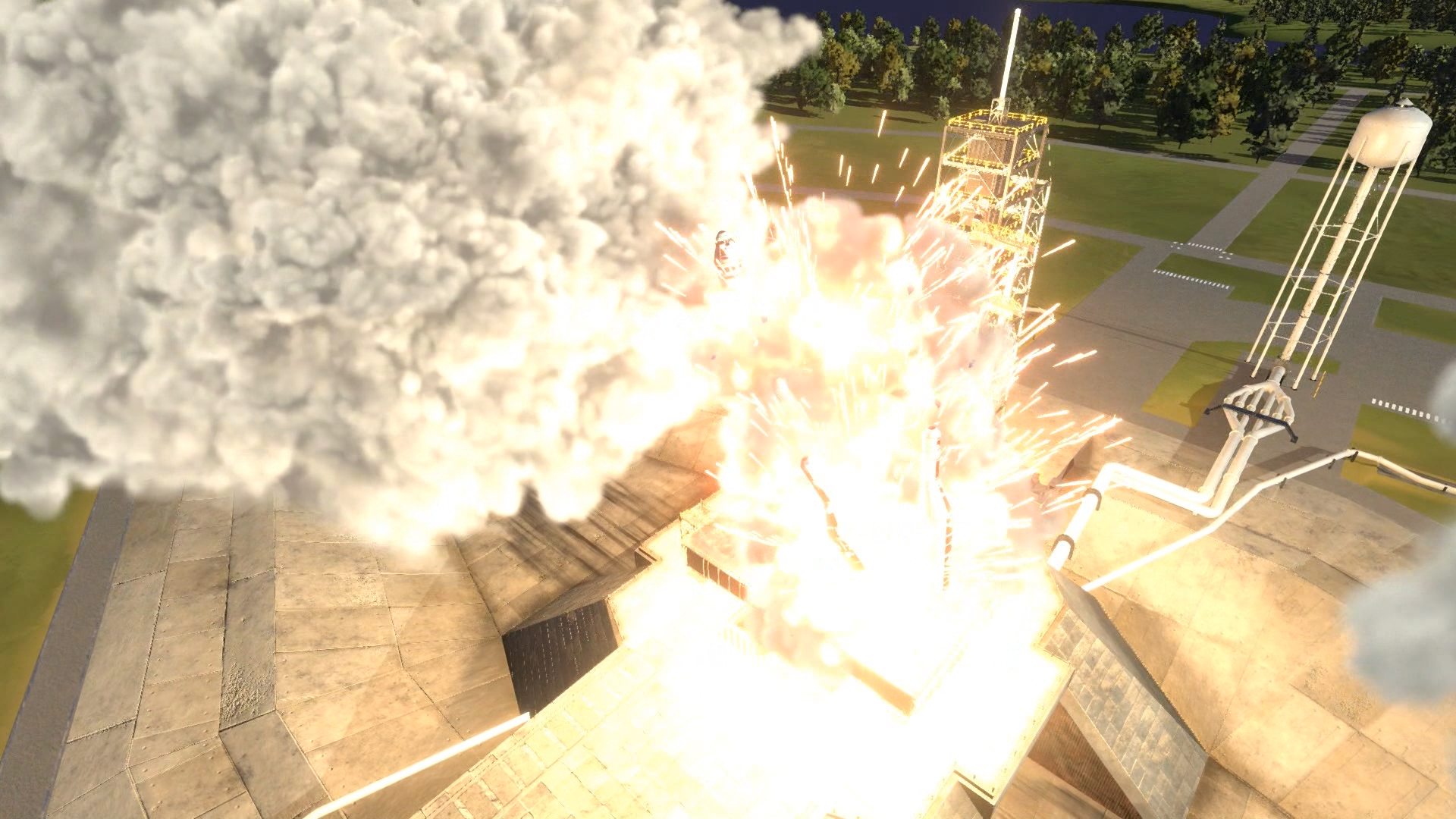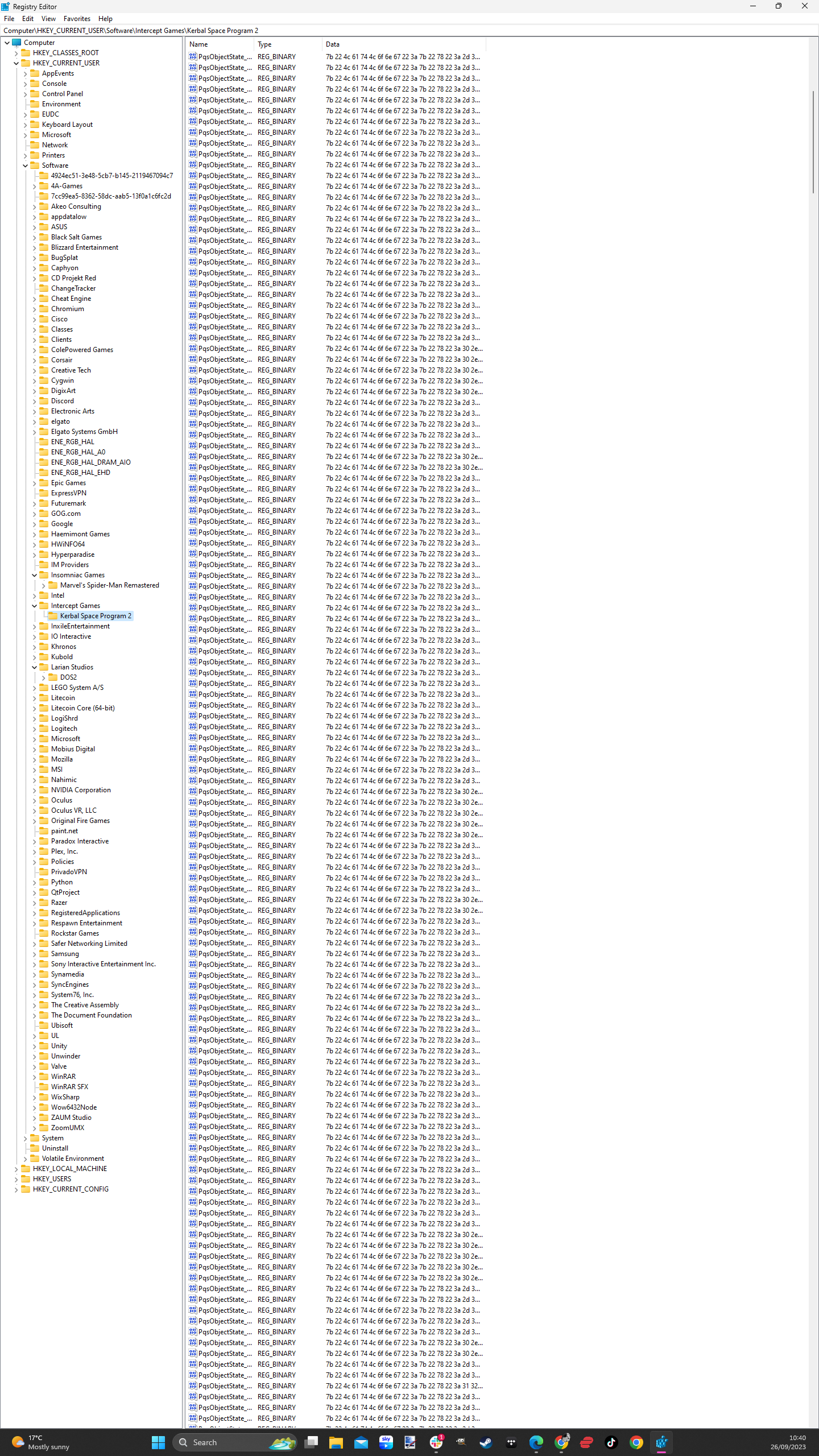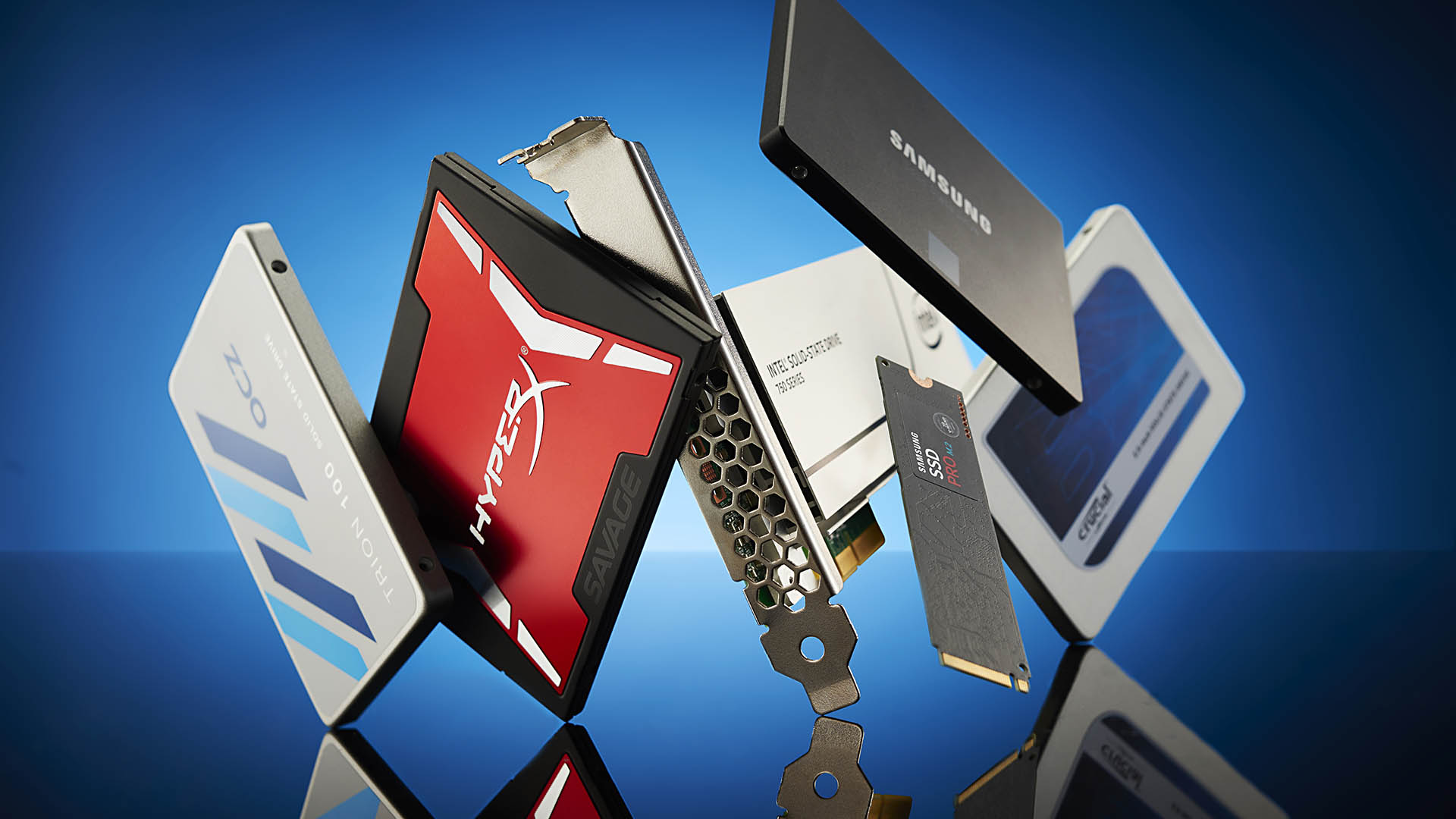Kerbal Space Program 2 has been spamming your Windows registry with junk since launch, but a fix is being tested right now
The developer is now aware of the issue and is currently testing a fix it will release as a hotfix update.

Your Windows registry is not the sort of place you want game code to be constantly adding a whole bunch of unnecessary data to, but that's exactly what Kerbal Space Program 2 has been doing. Presumably since it launched into Early Access, too.
KSP2 cannot catch a break. It was one of the poster children for a successful Early Access campaign—after an initial independent alpha stage—but pretty much all of that goodwill has evaporated with the release of this second instalment. It's light on features, much lighter than the original game, and has suffered from a litany of performance issues.
And now a potentially system-breaking bug has been found, highlighting the fact that the game's accessing the Windows registry regularly throughout the game—when you're moving between loading a new save, or shifting between areas (planets or moons)—and writing new, unnecessary data into it over and over again.
Community managers and developers have responded in both the KSP forums and the discussion section on Steam, to say that the developers are (now) aware of the issue and have a fix. "It's currently being tested and we're aiming for a hotfix, thanks for bringing it to our attention!" is the current response on Steam.
That it's being looked at, has theoretically been fixed, and is just in the testing phase now, is a good thing. That it existed in the first place, well… less so.
There are many responses across Reddit and the forums, questioning how any developer could have created such an issue, with some talking about the situation being akin to the KSP2 devs simply using the registry file as a temporary data dump. Others have said it looks like mistakenly storing settings under a constant variable where it was actually a dynamic one—"a pretty basic mistake, one every developer has made at some point in their career."
Whatever's actually happening here, the Windows registry getting filled with a huge number of entries every time a game is played will result in problems with your system, where the game will display PlayerPrefsException errors while trying to load the game. The current fix is digging into your Windows registry yourself and deleting the entire Intercept Games entry—but deleting things from your registry can be dangerous.
The biggest gaming news, reviews and hardware deals
Keep up to date with the most important stories and the best deals, as picked by the PC Gamer team.


Best SSD for gaming: The best speedy storage today.
Best NVMe SSD: Compact M.2 drives.
Best external hard drives: Huge capacities for less.
Best external SSDs: Plug-in storage upgrades.
You'll probably be fine, but deleting the wrong thing can have dramatic repercussions on the functioning of different applications, and maybe even your operating system. So yeah, it's not a good place to go pruning entries on the off-chance you hit upon the right thing.
And if you're wondering just how many entries you might get… I've barely played the game since struggling with its barebones practically alpha state, logging some 14 hours blowing up Kerbals on the launchpad, and I've got 1,548 PqsObjectState entries in my registry. One person on the forum has claimed to have deleted 1.65GB of needless data from killing the registry entry.
Maybe take that with a grain of salt, but I'm still not going to be booting up KSP2 again until it's been sorted. As a hotfix, the patch ought to come through as soon as the fix has been thoroughly tested, so hopefully we can expect that soon. We'll let you know when it does.

Dave has been gaming since the days of Zaxxon and Lady Bug on the Colecovision, and code books for the Commodore Vic 20 (Death Race 2000!). He built his first gaming PC at the tender age of 16, and finally finished bug-fixing the Cyrix-based system around a year later. When he dropped it out of the window. He first started writing for Official PlayStation Magazine and Xbox World many decades ago, then moved onto PC Format full-time, then PC Gamer, TechRadar, and T3 among others. Now he's back, writing about the nightmarish graphics card market, CPUs with more cores than sense, gaming laptops hotter than the sun, and SSDs more capacious than a Cybertruck.

